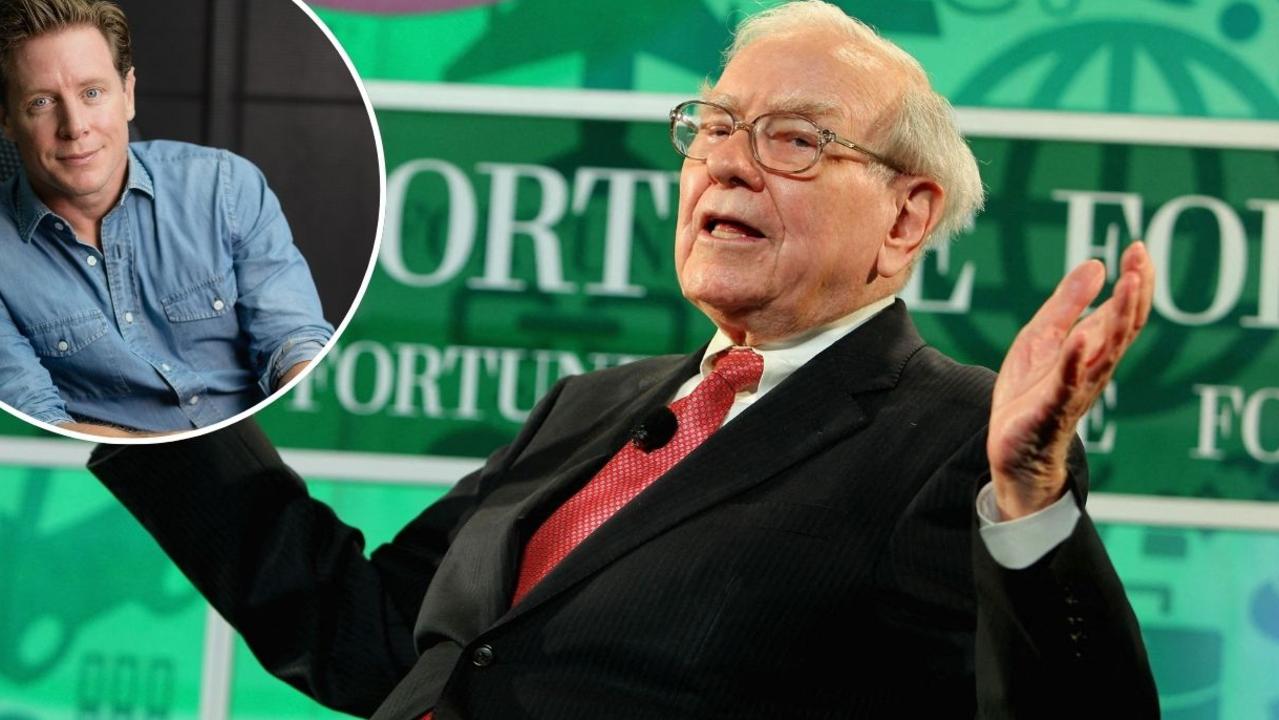Barefoot’s life lesson: Don’t wait until you’re too old to invest in great memories
Here’s a Barefoot life lesson: Once you’ve covered your financial bases you should spend your money on creating great memories instead of just accumulating wealth.
Barefoot Investor
Don't miss out on the headlines from Barefoot Investor. Followed categories will be added to My News.
I’ve had a bloke living in my back paddock for the last couple of months.
True dinks.
His name is Oliver, and he’s a 21-year-old pommy backpacker who works on my farm, lives in his van, and does his business in our shearing shed portaloo (which, up until now, has only been used by shearers and requires a full hazmat suit to do a number two).
The other night he pulled out a map of Australia and said “Where should I go next?”
“You’re living the dream, mate!” I told him, as I retreated to my warm home, with a flushing toilet.
Now the ‘sensible’ financial advice for a young bloke like Olly is that he’d be better off in the long run staying home, getting a good job, and starting to sock money away to save for a house deposit.
If he did that he could buy a cheap (overpriced) home in his late twenties. And if he did that he could spend his thirties and forties working even harder to try and pay it off. (As one burnt-out forty-something manager told me over coffee this week, “I spend more time mentoring the kids who work at the office than I do my own kids at home”).
The sensible financial advice says that Olly will finally be able to slow down and enjoy himself when he retires but there’s only one problem …
You see, the big taboo topic of retirement is that many retirees don’t end up spending their nest eggs.

They hoard it, because, understandably, they’re scared of running out of money. Yet by the time they work out they’ve got more than enough left over … they’re often too old to enjoy it.
And so they die in their eighties with a big pot of money that they worked bloody hard for and sacrificed precious moments for … but never got around to enjoying.
That money is then left to their kids, who are then in their fifties or sixties and don’t really need it (they really needed help in their early thirties when they were starting their own family).
In the book Die With Zero, author Bill Perkins argues: “The number of actual experiences available to you diminishes as you age. Yes, you need money to survive in retirement, but the main thing you’ll be retiring on will be your memories – so make sure you invest enough in those.”
And right now Olly is investing in memories that will last him a lifetime: he’s fallen for a lovely Aussie girl; partied on a deserted island under the moonlight; and met weird and wonderful people (my kids want to take him to school for show and tell).
So what’s the lesson?
Well, it’s not to ‘die with zero’ (as the book says). That’s fraught with danger, given you don’t know when you’re going to die, and you don’t want to run out of dough early.
No, the lesson is that, once you’ve worked through the Barefoot Steps and have your financial bases covered, you should spend your money on having life-changing adventures (or enabling them for your loved ones!) instead of spending your time accumulating more money.
After all, life is all about the memories we make with the limited time we have. And I’ll share with you my next adventure … next week.
Tread Your Own Path!
I Got Carjacked!
Hi Scott,
Am I up a brown creek with no paddle? Years ago an ex-partner left me financially screwed. Fast-forward to now and my husband and I have started our Barefoot life and are loving it (even though we are low income earners). However, last year I needed a reasonably priced second-hand car, and with the trade-in we took out a loan with Money3 for $8,000. The interest rate is a hefty 24.95% and the cost of the loan is $6,200 over three years! I know I signed and am liable for the amount, but I feel like I’ve been financially exploited because of my previous situation.
Ursula

Hi Ursula,
Yes, you got exploited.
And that’s not just my opinion; it’s also the view of the corporate cop, ASIC, which is currently taking Money3 to court over their second-hand car lending practices.
It may be the case that your loan was unsuitable (and unconscionable), so I’d suggest you contact the National Debt Helpline on 1800 007 007 to help you make a complaint to Money3. Here’s the truth: there’s an entire industry that benefits from people’s financial illiteracy. The business model is to trap their customers in a merry-go-round of financial misery that most people never get out of. This is the reason I’m so passionate about financial education in schools: we simply expect kids to know this stuff, when in reality they don’t. And they’re going up against experienced, wealthy finance businesses that know – and use – every trick in the book.
How to earn $6000 in One Hour
Hey Scott,
My wife and I are fiercely trying to pay down our home loan. After trying to negotiate down our rate with our lender last year, we decided it was time to switch to what was, at the time, the best variable rate we could find. Fast-forward a year and there are far better rates ‘out there’, with many lenders offering enticing cash bribes. So my question is: what’s stopping me from refinancing regularly … even yearly? Is there a chance lenders might start rejecting my applications, leaving me in no-man’s land?
Tim

Hi Tim,
No, I don’t see that happening.
I had a Barefooter write to me about what happened when he threatened to leave his bank for a cheaper rate, and the bank called his bluff.
Here’s what happened next, in his own words:
“ANZ were offering new customers a $4000 sign-on bonus (and a slightly better rate), so we switched. But then, a few weeks later, I saw that my original bank was offering $3000 for new customers. Bang! Before you know it, I’m back with my original bank. For about 1–2 hours of paperwork and a few phone calls and emails, we were able to pay $6000 off our home loan (after fees!).”
Nice one!
Last month the CEO of ANZ Bank said that the home loan market was the most competitive he’d ever seen, and some banking analysts are suggesting that the discounts and incentives new customers are getting offered at the moment are irrational.
Understand this: the banks aren’t flashing the cash to their loyal customers … only those who bother to switch. So the only irrational thing you can do is not spend a few minutes putting your bank under the hammer this weekend.
Holy Moly!
Last week I challenged you to do ‘one thing’ towards what you’ve been putting off, and then email me and let me know what you did.
Strike me pink!
Sitting back on the farm, tapping this little note each week to you, it’s easy to forget how many of you there are out there in the wilds. (My inbox got absolutely destroyed … in a good way.) Here are some of the things people have got off their rumpus and done:
“I’ve been a stay-at-home mum for almost seven years. My ‘one thing’ is I’ve now enrolled in TAFE to reskill myself”, says Tania.
“I got suckered into a high-pressure sales pitch for a super fund years ago. I knew it was a bad idea, but I felt so ashamed and stupid that I just ignored it. This week, I called them up and transferred to AustralianSuper”, said Paul.
“I’ve had the Vanguard Aust app on my phone for close to 12 months, but fear of the unknown has stopped me from doing anything. Now I’ve transferred $500 from my savings to Vanguard and will invest it in their International Shares Index Fund. It’s a pretty exciting feeling to be a first-time investor”, says Billy.
“I have made the list of outstanding debts and paid the first one off – the dreaded credit card. Already a sense of relief has washed over me. One small step but a step in the right direction nonetheless”, says Tom.
“I quit my executive role and took a $50,000 pay cut to be with my family more – and I couldn’t be happier!” says Linda.
“We have spoken with our bank and reduced our mortgage interest rate by 0.5%, as well as changing our repayments to fortnightly instead of monthly. It cost nothing and saves us $$. Small steps, but they all help”, says Daniel.
“For years we felt we were inseparable from the hooks sunk into us by our financial adviser. But not today. We sat down with a known, trusted and experienced fee-for-service professional who was able to clearly lay out a pathway to extract ourselves from our SMSF (and cut some very expensive ties with our existing adviser)”, says Col.
“Today, after your email, I’ve decided to do a digital detox on my phone. I’ve deleted the three key apps that lead to 3.5 hours a day on the phone screen”, says Susan.
Bingo Bango!
Thank you to everyone who wrote in. The answers have had a deep impact on me (and my kids … I’ve been reading some out at the family dinner table). We have so many amazingly determined and inspiring people in our community. I’m still reading through them all, and I look forward to reading about your wins too.
You Got This!
Information and opinions provided in this column are general in nature and have been prepared for educational purposes only. Always seek personal financial advice tailored to your specific needs before making financial and investment decisions


